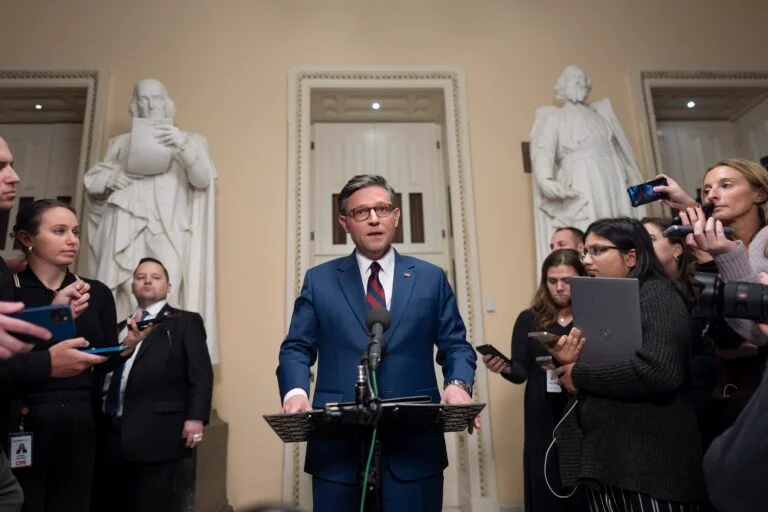
In a decisive move to avert a government shutdown, the House of Representatives In the United States passed a funding bill late Friday, securing continued operations and disaster relief just hours before the midnight deadline.
The legislation, approved by a vote of 366-34, with one member voting present, now moves to the Senate, where it is expected to pass smoothly before reaching President Joe Biden’s desk.
The bill extends government funding through March 14, allocates $100 billion for disaster relief, and provides $10 billion in aid for farmers. However, it does not address the debt ceiling, a contentious issue that dominated discussions earlier in the week.
“While this bill does not include everything we sought, it ensures vital disaster relief and prevents a shutdown, allowing the government to function effectively,” said White House Press Secretary Karine Jean-Pierre as the House voted.
The week leading up to the vote was marked by political turbulence, as President-elect Donald Trump rejected an earlier bipartisan agreement crafted by House Speaker Mike Johnson. Trump demanded the suspension of the debt ceiling, a move that many House Republicans resisted.
“Trying to jam a debt ceiling suspension into the legislation at the 11th hour was not sustainable,” said House Minority Leader Hakeem Jeffries, emphasizing the need for a separate approach to the issue.
After two failed attempts, Johnson presented a streamlined version of the bill that excluded the debt ceiling provision, gaining broader support. Despite initial opposition from within his party, Johnson secured the backing of key figures, maintaining communication with Trump throughout the process.
“He knew exactly what we were doing and why,” Johnson said after the bill’s passage. “I think he’s pleased with this outcome.”
The legislation’s focus on disaster relief was a significant factor in its bipartisan success. The $100 billion allocated will aid recovery efforts following hurricanes and other natural disasters.
“This bill provides essential resources for communities in need while ensuring government continuity,” said Republican Rep. Tom Cole, chairman of the House Appropriations Committee.
Democrats also rallied behind the measure, with more Democratic votes in favor than Republican ones, highlighting the bipartisan effort to prevent a shutdown.
The Senate is expected to approve the bill swiftly, though President Biden may not sign it until the weekend due to procedural delays. Minimal disruption to government functions is anticipated.
Meanwhile, the debt ceiling remains unresolved, with Republicans vowing to address the issue in a future tax bill once Trump assumes office. As economic pressures mount, including inflation and deficit concerns, this debate is expected to dominate discussions in the new year.
“We face extraordinary challenges ahead, but this agreement is a step toward stability,” said Johnson, reflecting on the week’s tumultuous negotiations.








